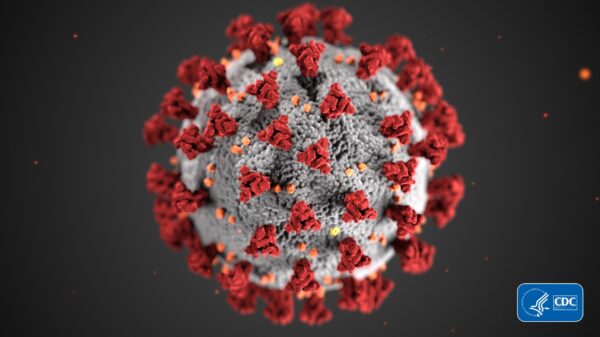
This illustration, created at the Centers for Disease Control and Prevention (CDC), reveals ultrastructural morphology exhibited by coronaviruses
Researchers in China testing drugs as potential treatments for Covid-19 racked up one failure and one potential success Wednesday.
In an article in the New England Journal of Medicine, researchers in a clinical trial in China of AbbVie’s HIV drug Kaletra (lopinavir, ritonavir) wrote that it had failed to show a benefit compared with standard of care treatments. Results of the study showed similar rates of mortality and detectable viral RNA, while the drug did not differentiate from the standard of care in terms of time to clinical improvement. Thirteen patients receiving the drug dropped out due to adverse events, but although gastrointestinal side effects were higher in the Kaletra group, serious adverse events were more common in the control group. The trial enrolled 199 patients and randomized them on a 1:1 basis.
AbbVie, based in suburban Chicago, did not respond to a request for comment.
Meanwhile, another team of researchers in China publicized potentially more promising results, stating that a trial of a generic version of Fujifilm Toyama Chemical’s influenza drug Avigan (favipiravir) was able to help patients recover more quickly than those who received placebo, though the data do not appear to have been published.
News media reported that in a press conference, China National Center for Biotechnology Development Director Zhang Xinmin said treatment with Avigan resulted in patients recovering from fever in an average of 2.5 days and from cough in 4.6 days, compared with 4.2 and about six days for those in the control group. Meanwhile, 8.2% of patients receiving the drug required breathing assistance, compared with 17.1% of those in the control. The results came from a trial of 200 patients in the Chinese cities of Wuhan, where the virus first emerged in December, and Shenzhen.
A spokesperson for Fujifilm wrote in an email that because the study used a generic version of Avigan, and the company was not involved in the research, it could not comment on the study. However, she noted that as a viral RNA polymerase inhibitor with a mechanism of action that inhibits viral gene replication inside infected cells, Avigan is expected to have an antiviral effect in viruses other than influenza.

A Deep-dive Into Specialty Pharma
A specialty drug is a class of prescription medications used to treat complex, chronic or rare medical conditions. Although this classification was originally intended to define the treatment of rare, also termed “orphan” diseases, affecting fewer than 200,000 people in the US, more recently, specialty drugs have emerged as the cornerstone of treatment for chronic and complex diseases such as cancer, autoimmune conditions, diabetes, hepatitis C, and HIV/AIDS.
In an emailed statement, the National Institute of Allergy and Infectious Diseases said it was looking at a “panel of drug repurposing candidates” as potential treatments for SARS-CoV-2 that includes favipiravir.
However, South Korea’s Yonhap News Agency reported Monday that the country’s Ministry of Food and Drug Safety had decided not to import favipiravir for use, as it was of the view there was insufficient data to demonstrate its efficacy.
Photo: Centers for Disease Control and Prevention













